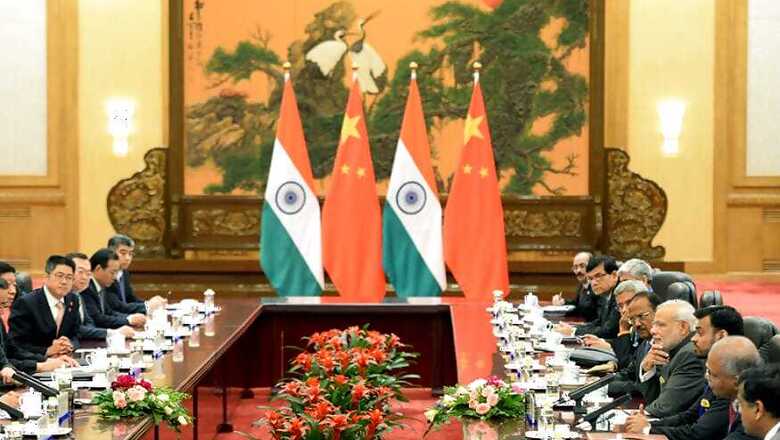
views
One of the longest running shows on CCTV News (full disclosure: I worked for this channel from 2011 to 2014) was a talk show called Dialogue. It is a poorly produced, poorly edited chat show with an anchor who could barely string together three straight sentences in English and two to three talking heads.
By international standards this show would not have got air time on any global news channel. Which is why it was surprising to many of us international journalists why Dialogue was given such a long rope. One day the producer of the show, an affable elderly British gentleman, let me in on the secret. “Dialogue allows China to say what it wants to the rest of the world but the spokesperson of the Foreign Ministry can’t say from his bully pulpit.”
In the secretive corridors of power in Beijing often times what is said by think tanks and TV show panelists gives you a window into the prevalent strands of thinking in the Foreign Ministry. Which is why we should read very carefully the words of Hu Shisheng of the China Institute of Contemporary International Relations on Modi’s comments on Balochistan in his Independence Day address. Remember, the Chinese Foreign Ministry hasn’t taken a position on the Prime Minister’s comments. Neither has the US State Department or the Foreign Ministries of Iran and Afghanistan. This is the first articulation by an influential Chinese academic about the prevalent thinking in their Foreign Ministry about Balochistan.
“China will have to get involved if any Indian plot disrupts the $46 billion China-Pakistan Economic Corridor (CPEC),” said Hu in an interview to PTI.
It’s worth remembering that a large portion of the CPEC runs through restive Balochistan. Its termination point is the port of Gwadar through which the Chinese are hoping to import crude oil to Xinjiang and also hoping to send finished goods across to Europe. The CPEC is an important part of Xi Jinping’s pet project One Belt, One Road. In recent years, China has been ‘looking West’ even as trouble mounts on its East both in the South and East China seas.
Even at the height of the Kargil War, China had not taken a public position backing Pakistan, a country which Chinese state media calls ‘iron brother’. This is the first time that the Chinese are articulating support to Pakistan in the event of a future armed conflict between New Delhi and Islamabad. This only lends further heft to the worst fears of India’s security forces: a two-front war with both China and Pakistan.
The Indian Defence forces have always been wary of fighting on both the Western and Eastern flanks, fighting both Pakistan and China at the same time. Modi’s public articulation of human rights violations in Balochistan has only driven China further into the embrace of its ‘all-weather’ friend.




















Comments
0 comment